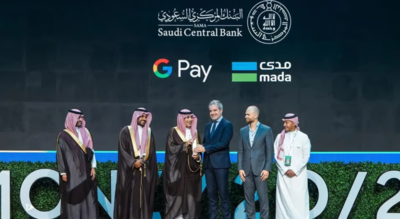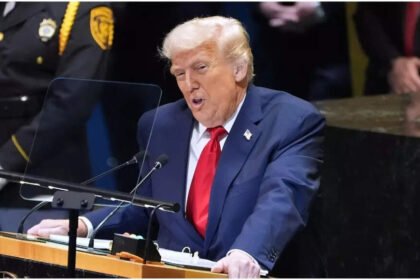In a significant step toward realizing Saudi Arabia’s Vision 2030 goals, the Saudi Central Bank (SAMA) announced the launch of Google Pay and a new agreement with Ant International to introduce Alipay+ acceptance by 2026. These developments, unveiled on September 15 at the Money20/20 Middle East conference in Riyadh, aim to bolster the Kingdom’s fintech infrastructure, accelerate the shift away from cash, and expand global digital payment options for consumers and businesses alike.
Google Pay officially launches in Saudi Arabia
On September 15, 2025, the Saudi Central Bank (SAMA) announced the official launch of Google Pay in Saudi Arabia, marking a major addition to the Kingdom’s expanding digital payments ecosystem. The rollout, enabled through the national payment network, Mada, was revealed during the Money20/20 Middle East event at the Riyadh International Convention and Exhibition Center in Mulham. The integration of Google Pay allows users in Saudi Arabia to add and manage Mada debit cards as well as digital credit cards like Visa and Mastercard directly through the Google Wallet app. Users will be able to make purchases both in stores using Tap to Pay and soon within apps and on the web. Security is a key feature of the service. Transactions made through Google Pay use tokenization, replacing actual card numbers with virtual tokens. Each token is device-specific and comes with a dynamic security code that changes with every transaction, enhancing payment security. Beyond payments, Google Wallet also offers storage for loyalty cards, event tickets, boarding passes, and other digital items, allowing users to organize important items in one place for quick access on their phones. The service is currently supported by Al Rajhi Bank and Riyad Bank, with additional banks expected to be onboarded in phases.
Strategic role in Vision 2030 and digital economy goals
The launch of Google Pay is part of a broader initiative by SAMA to strengthen Saudi Arabia’s digital infrastructure and reduce reliance on cash transactions. It supports the objectives of both the Financial Sector Development Program and the overarching Vision 2030 strategy. SAMA highlighted that this move aligns with its mission to:
- Expand the use of fintech solutions across smart devices
- Facilitate a secure and user-friendly digital payment experience
- Increase financial inclusion across all segments of society
- Meet the growing demand for cashless payment solutions in the Kingdom
According to SAMA, the initiative not only modernizes the local payment experience but also reinforces Saudi Arabia’s positioning as a global hub for fintech innovation.
Alipay+ to be accepted in Saudi Arabia by 2026
Alongside the Google Pay rollout, SAMA also signed a new agreement with Ant International to enable Alipay+ acceptance across Saudi Arabia by 2026. Alipay+ is a global cross-border digital payment solution that allows users to transact using international e-wallets at local merchants. The agreement will integrate Alipay+ into the Mada infrastructure, enabling visitors to Saudi Arabia to make secure transactions at local retail points using their existing international digital wallets. This is a crucial development for Saudi Arabia’s ambitions to attract more global fintech activity and make the Kingdom a seamless destination for digital commerce, especially as it continues to host an increasing number of global visitors and investors.
Fintech sector’s explosive growth and future outlook
In his keynote address at Money20/20 Middle East, SAMA Governor Ayman Al-Sayari highlighted the rapid growth of Saudi Arabia’s fintech industry. Between the end of 2022 and August 2025, the number of active fintech companies in the Kingdom rose from 82 to 281, marking more than a threefold increase. He also shared key figures underscoring this momentum:
- SR9 billion (USD 2.39 billion) in cumulative fintech investments attracted to date
- 79% of total retail payments in 2024 were electronic
- 12.6 billion electronic transactions processed in 2024, up from 10.8 billion in 2023
Al-Sayari emphasized that these figures reflect both the ambition and capacity for innovation within the Kingdom’s financial sector, with digital payments forming the backbone of this transformation. Saudi Arabia’s Finance Minister, Mohammed Al-Jadaan, also addressed the audience, highlighting the nation’s financial market surpassing SR2.4 trillion ($648 billion) and ongoing efforts to integrate artificial intelligence tools into financial operations, signaling a future-forward direction for the sector. The Money20/20 Middle East conference, which runs from September 15 to 17, features participation from 451 brands, 450 speakers, 1,051 investors, and 157 startups, underscoring the region’s increasing influence in shaping the global fintech landscape.







